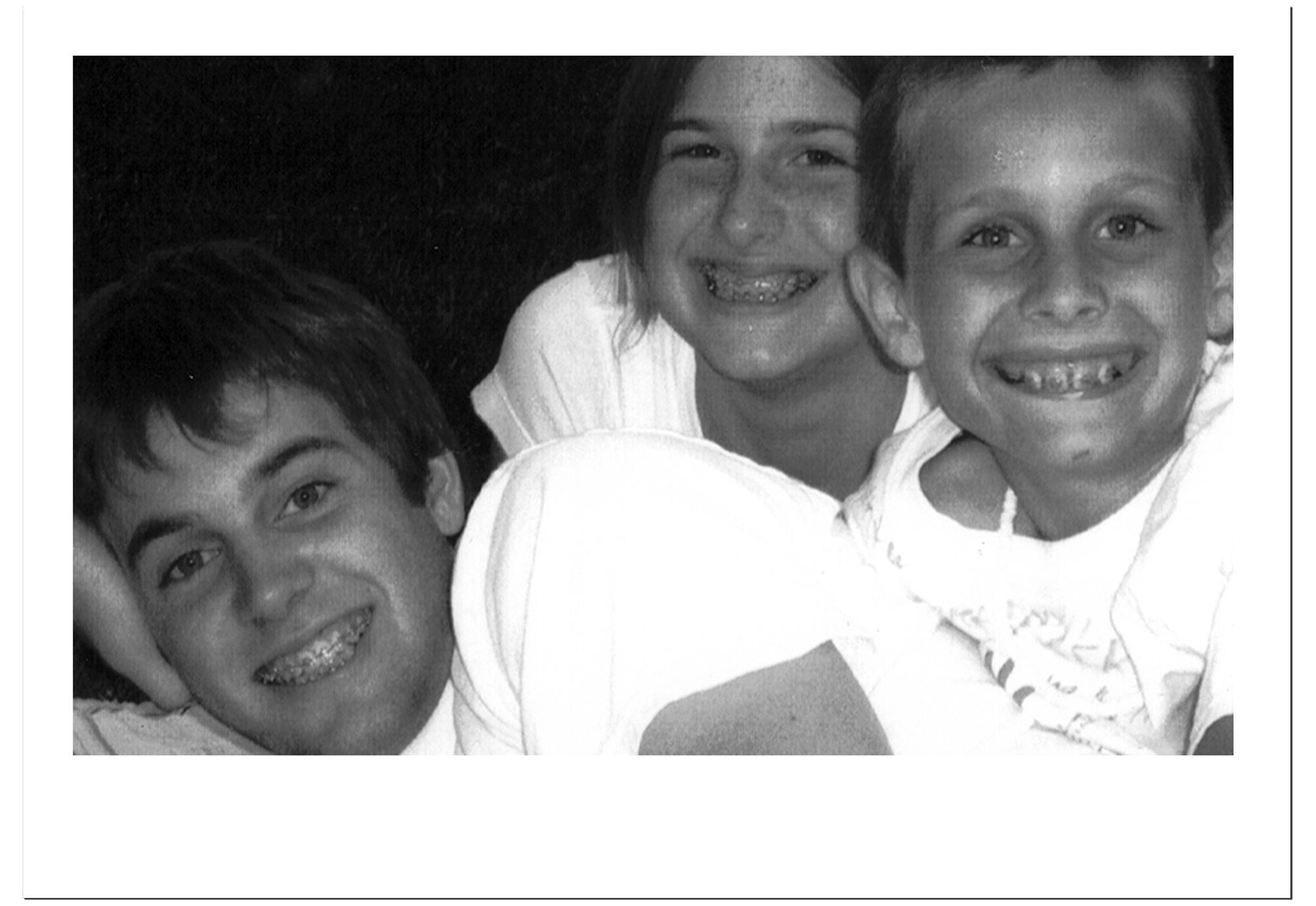Will You Sign My Yearbook?
Kevin, Wallis, and Drew. All in braces. As they looked during my summer of healing.
Chapter 15
The best thing about the last day of school as a junior high student was receiving a yearbook.
Sure, report cards were also handed out that day. But it was the yearbook everyone looked forward to getting. The yearbook, in many ways, became the defining moment as to whether the school year would be remembered as a good one or not.
Job one, when you received your yearbook, had to be done quickly and discreetly. This was the “flip-through-every-page-as-fast-as-you-can” move to ascertain how many times your picture could be found.
While nobody would admit it, we all had a rating scale for ourselves as to “how we did.” Mine went something like this:
I’m Disappointed but I Can Cope: The only picture of me in the yearbook was my class picture. That’s it. Nothing else.
I’m Embarrassed. Shoot Me Now: The only picture of me in the yearbook was my class picture. And
I look like a nerd. My life is over.
Honorable Mention: I’ve got the class picture. And it’s OK. I’m also in one or more pictures of clubs or teams I had joined. No complaints.
Home Run: I’ve got the class picture and it’s good. I’m in one or more pictures of clubs or teams. Best of all, I’m in a candid shot. If it’s just me, that’s fine. If it’s me with friends, well, my year couldn’t get any better.
Yearbooks were important. You could look at your yearbook and take pride in things you never took the time to think about throughout the year. It gave you a chance to step back and see the world you were communed with and begin to comprehend a little bit about who you were.
Beyond the pictures found on every page, there was one thing I loved more than anything about yearbooks. One thing that had more meaning, more insight, and more value.
It was the handwritten words, from classmates and teachers on that last day of school, as we passed our books around for each other to sign.
I was always excited to read the comments my friends made. I was even more excited to read the comments the girls I had long-standing crushes on would write.
My good friends always came through as expected. Some were better than others. Some were funny. Some were serious. But they all sounded like true-blue friends.
The girls were a mixed bag. Most were total letdowns. A few were nice. And every once in a while I’d get one that totally confused me.
Some of the things people wrote were downright flattering.
“To a super nice kid . . .”
“You’re a guy who’s almost perfect. Don’t get stuck up.”
“Jim, you are a great guy and have the best attitude towards life.”
“You’re one of the nicest persons I know . . .”
Good stuff to read when you’re fourteen years old or so. But then again, those are the kind of comments you expect to read from your good friends. That was where the surprise came in. Some of these comments came from people I didn’t know that well. And their words always made me stop and reflect.
I loved the tradition of signing yearbooks. I assumed everyone did. It was the one time of the year you could let down your guard and speak from your heart. It was the one time of the year you could write anything to anyone.
I’ve lost many a report card. I’ve tossed many a class project. But I hold on to every single yearbook.
I keep them not just for the pictures. I keep them for those written words from friends and people I never knew were my friends.
I keep them because those words—quite simply—remind me who I was to the people in my life.
If you were to map my movement with a GPS during those first couple of postsurgerical weeks, you’d see a big, black blob directly over my house. I didn’t move too far from home.
One of my favorite daily journeys took place every afternoon between 2:00 and 3:00. It was my slow, steady walk out to our curbside mailbox and back.
Sure, generally speaking, mail isn’t something most people look forward to. Catalogs, promotional postcards, flyers, and, of course, bills usually make up most of the mail I’ve received over most of my adult life.
But one of the perks of being sick or having surgery is that you start receiving cards and notes. And most days during that summer at home brought me someone’s well wishes or thoughts.
I got used to it really fast.
The sound of our mailman’s well-worn muffler huffing and puffing down the street was my sign to head out to retrieve the day’s catch. My ritual was the same. I’d flip through the pile of envelopes as I walked up our driveway back to the house and take a mental inventory of the envelopes and return addresses. It wasn’t unusual to find one from someone who wasn’t a part of my world—sometimes even a total stranger. Those were the envelopes I’d always dig into first. Partially out of curiosity. Partially because it was interesting to learn what would prompt people to take time and send a card.
Day after day, I’d think to myself, “How cool was that?”
I’d also think about how exceedingly simple it is to do something nice. I’d feel good. And I’d also feel a little guilty because I was regularly reminded of how often in my life I’ve failed to do something thoughtful for another person. I used to do those things.
I’d also think about an article I read years earlier in the Chicago Tribune. It was written by columnist Mary Schmich. Her words originally had such an impact on me I cut out the article and pinned it to my bulletin board at work. And over the years, the article yellowed and picked up several more pinholes in it as I moved it around my bulletin board. But her message never aged.
She wrote about a colleague of hers, Jeff MacNelly, a Pulitzer Prize–winning editorial cartoonist who had been fighting lymphoma.
She wrote about how, for several months, she had a yellow Post-it note on her desk that reminded her to “Write Jeff.” She wrote about how she’d write other notes here and there to remind her to drop Jeff a note. She wrote about how she would often think of Jeff and how much she missed seeing him. And she wrote about how, as opposed to writing Jeff at those moments, she would just write herself another note to remind herself to write Jeff.
She shared what eventually moved her to take the few minutes to write him. She had heard that things were not good.
So she finally wrote him a quick note and put it in the mail.
In her column, she wrote about why she never took the time to write him prior to that day. It was simply because she didn’t know what to say.
“So, for lack of the perfect thing to say, I said the worst thing possible—nothing.”
Her note never reached her friend. He died a day after she mailed it.
I received a variety of cards and notes that summer. Some were humorous. Some serious. Some religious. Some homemade. Some simply had signatures. Others had lengthy notes.
I valued each one equally.
Words truly can heal. They can surprise. They can encourage. It doesn’t matter if they are handwritten or if Hallmark had to be leaned on for a little help.
Words matter.
Because they remind each of us who we are to the people in our lives.


